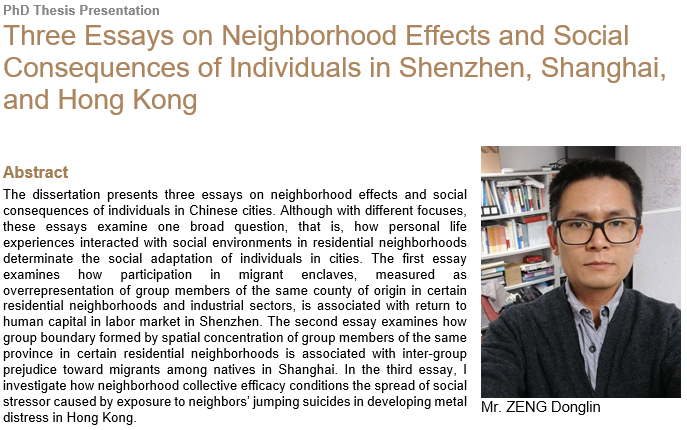Abstract
The dissertation presents three essays on neighborhood effects and social consequences of individuals in Chinese cities. Although with different focuses, these essays examine one broad question, that is, how personal life experiences interacted with social environments in residential neighborhoods determinate the social adaptation of individuals in cities. The first essay examines how participation in migrant enclaves, measured as overrepresentation of group members of the same county of origin in certain residential neighborhoods and industrial sectors, is associated with return to human capital in labor market in Shenzhen. The second essay examines how group boundary formed by spatial concentration of group members of the same province in certain residential neighborhoods is associated with inter-group prejudice toward migrants among natives in Shanghai. In the third essay, I investigate how neighborhood collective efficacy conditions the spread of social stressor caused by exposure to neighbors’ jumping suicides in developing metal distress in Hong Kong.

